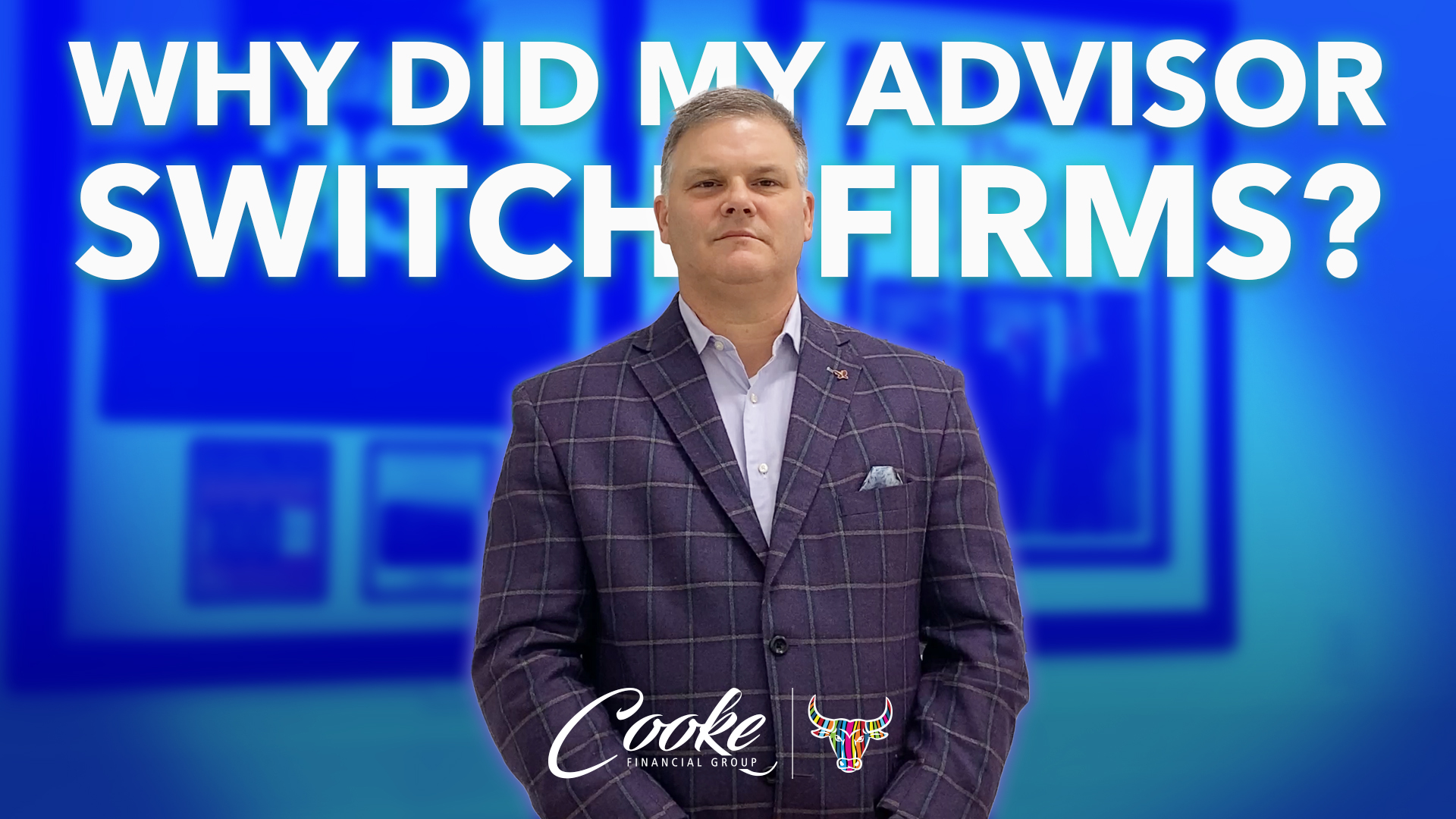Why did my financial advisor change firms?
The short answer to both questions is it depends on the situation. Sometimes it’s of value to you and other times it’s not.
No matter why your advisor changed firms, they will ask you to transfer all your assets from the old firm to the new firm. This transfer process is called an ACAT – automated customer account transfer. It’s a method by which we transfer financial assets between banks and brokerage houses.
Before you ever sign an ACAT it’s an incredibly valuable step to review FINRA Broker Check. Type in your advisor’s name and city to see results. This will give you an indication if there are any problems traveling with your advisor from the old firm to the new firm. You should be aware if such problems exist.
Chris Cooke, Partner, Wealth Advisor, provides more info on why an advisor may change firms.
Important questions to ask yourself about your advisor include:
- What’s their longevity in the industry?
- How long have they had a relationship with you?
- Are there independent sources that suggest they’re reputable?
These are a few ways to help determine if your advisor is making a move for the right reasons and help you feel at ease. If you have any doubts that’s a warning you should examine their move further.
Let’s explore a couple different “changing firm” scenarios.
Scenario 1: My financial advisor is leaving a large brokerage firm to go to another large brokerage.
If your financial advisor changes from one large brokerage firm and move to another large brokerage firm – or a regional brokerage firm – this move tends to come with a large bonus payment.
Typically, the bonus payment for your advisor to make the move could be anywhere from 100%-300% of their last year’s revenue. The new firm is in effect buying their business and you the client are part of what’s being purchased.
It’s essential for you to evaluate why your advisor is making the move. If it’s for money, and for no particular benefit to you then it might not be in your best interest.
Some important questions you might ask your advisor to give you a better understanding are:
- Do my financial assets transfer in kind?
- Will it impact my taxes?
- Is there a fee break?
- Are there more investment opportunities for me?
Make certain your financial advisor is clear when answering. The answers to these questions need to be satisfactory to you. If not, you should assess the move more.
Scenario 2: My financial advisor is leaving a large brokerage firm to go to an independent firm.
If your financial advisor leaves a large brokerage firm to move to an independent firm, there’s usually no substantial bonus payment for them to make this move. There are likely other reasons.
This kind of move can be made to become more independent, objective, and unbiased. Perhaps they’re making the move so they can offer you a wider array of investment options.
If this scenario describes your advisor, it’s still essential for you to evaluate why they’re making the move.
- Do my financial assets transfer in kind?
- Will it impact my taxes?
- Is there a fee break?
- Are there more investment opportunities for me?
In most instances your advisor’s change to an independent firm will give you access to more investment opportunities, especially local ones they were unable to offer before. Make sure your financial advisor is clear when answering. The answers to these questions should be suitable for your situation. If not, you should review the change in more detail.
How often do financial advisors change firms?
Sometimes in a career a financial advisor, or financial advisor team, might make 1 or 2 changes. On the other hand, you might see an advisor change firms more frequently in their career. In either example they might be making the changes for all the right reasons.
When an advisor moves the new firm almost always wants a non-compete. In many cases non-competes last anywhere from 7-10 years.
Anytime you notice a financial advisor moving from firm to firm every 7-10 years it may send up a red flag and suggest they’re moving because their non-compete ends. This move means more money. If they move before their non-compete ends, they must pay their bonus back. A track record with this pattern may indicate the moves aren’t for better opportunities or client outcomes, and instead it’s only a better paycheck for the advisor.
Final thoughts on changing firms from Cooke Financial Group.
It's worth evaluating the reasons why your financial advisor is changing firms and how it might affect you before ever signing an ACAT.
We hope whatever conclusion you come to on your financial advisor’s change benefits you, your family, and your financial assets. If you ever desire a second opinion before you move, please email us at contactcooke@cookefg.com.
Registered Representatives of Sanctuary Securities, Inc. and Investment Advisor Representatives of Sanctuary Advisors, LLC. Securities offered through Sanctuary Securities, Inc., Member FINRA, SIPC. Advisory services offered through Sanctuary Advisors, LLC., an SEC Registered Investment Advisor. Cooke Financial Group is a DBA of Sanctuary Securities, Inc. and Sanctuary Advisors, LLC.


